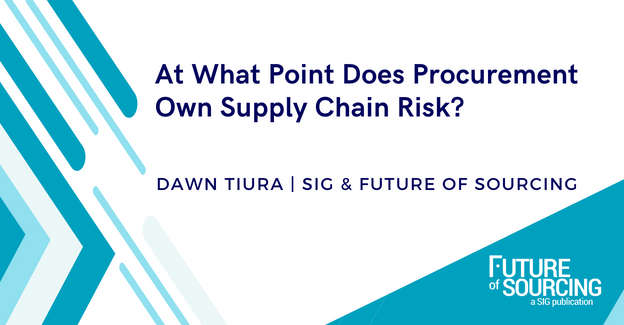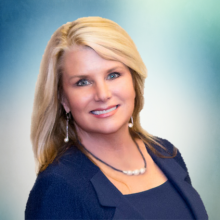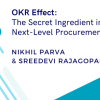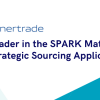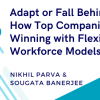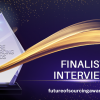At What Point Does Procurement Own Supply Chain Risk?
In her October 24th 2022, The Drive article, Emma Helfrich reported the following: “An engine designed by the Austrian company Rotax was discovered installed in one of Russia’s Iranian-made Mohajer-6 drones that went down over the Black Sea earlier this month.” Helfrich then said, "Rotax says it has launched an investigation into its engines powering Iranian drones.”
In response to the above news, an October 2022 Procurement Insights article posed the following question to its readers: “how deep into the supply chain should procurement’s responsibility extend?” Specific to the Rotax situation, “to what degree should the company and their Canadian Parent Bombardier Recreational Products be held responsible for the “unauthorized” use of their engines in Iranian-made Russian military drones?”
How do you think the readers responded to the question?
Who Should Take Responsibility (and when)?
This one comment effectively sums up the consensus on the part of many procurement professionals: “I am a bit confused. How is the Rotax engine being sold to an illegal party a procurement issue? Isn't this a sales issue and a lack of procedures to validate the actual buyer and destination?”
At first glance, the above may seem like a reasonable response. After all, at which point do procurement and sales start working together throughout the extended supply chain? At which stage do they stop?“Sales and procurement are related because they both play a part in fulfilling customer orders. They both must be on the same page throughout the turnaround process. Ultimately, they need to be in sync regarding manufacturing times, shipping timeframes, and client expectations.” – Cristaux - The Relationship Between Sales And Procurement - Cristaux
How do you interpret the above statement?
The "who should take responsibility" is clear based on the above. Purchasing and procurement must work together – as well as with the other essential stakeholders within and outside the enterprise.
The real question(s) is when does the collaborative process begin, and how deep should it extend into the end-to-end supply chain?
The Right View of Procurement?
How does your organization view procurement’s role within the enterprise?
Is procurement seen as a functional arm of finance waiting to receive orders to fulfill? Or does the company recognize procurement as a strategic partner whose experience and expertise in many areas is an important asset?
“Most procurement specialists have a bachelor's degree in finance, business, accounting, or a related field, with a master's degree being desirable. Successful procurement specialists often possess strong industry knowledge followed by impeccable negotiation skills and rapport building.” - What is a Procurement Specialist? - Glassdoor
According to most top-level executives, their organization's success is due, in no small part, to their procurement teams' strategic capability and contributions. Within these leading organizations, procurement has evolved beyond a static, functional fulfillment role to a well-informed, actively engaged contributor to success.
Going back to the question of when and how deep into the extended supply chain procurement professionals' involvement should begin, the answer is clear: as early as possible for as long as possible.
A Final Case in Point (Rotax)
According to the March 26th, 2022, MSNBC article With Russian sanctions, small companies may be in for a big surprise, "most on Main Street may be unlikely to find sanctions violations on their books." Nevertheless, the writer cautions that companies (regardless of size) "are going to be held responsible."
"Small and medium-sized firms must adhere to the same restrictions (as large firms) . . . like ignorance of the law (or sanctions) is no excuse for breaking it; ignorance of where your products ultimately end up doesn't get you off the hook with sanctions."
How do you think the suppliers for the drone project will react when they are subjected to sanctions? Who owns the supplier relationships?
See also
11/11/2023


